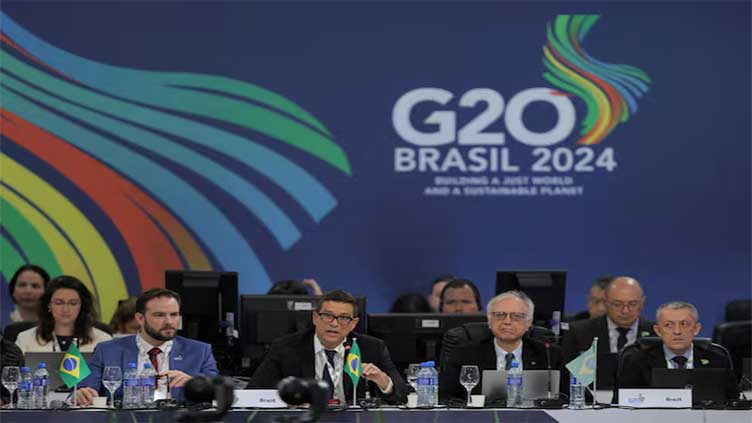G20 agree to work on Brazil's 'billionaire tax' idea, implementation seen difficult

World
Brazil has spurred discussion of a proposal to levy a 2% wealth tax on fortunes over $1 billion
RIO DE JANEIRO (Reuters) – The world's 20 biggest economies (G20) agreed on Thursday to work together to ensure the ultra rich are effectively taxed, in a declaration that seeks a balance between national sovereignty and more cooperation on tax avoidance.
The declaration, which will be published on Friday, was a priority for Brazil, chairing talks of the G20 this year, whose leader Luiz Inacio Lula, a former factory worker, was pushing to include the "billionaire tax" on the G20 agenda.
"With full respect to tax sovereignty, we will seek to engage cooperatively to ensure that ultra-high-net-worth individuals are effectively taxed," the G20 tax declaration, seen by Reuters, said.
"Cooperation could involve exchanging best practices, encouraging debates around tax principles, and devising anti-avoidance mechanisms, including addressing potentially harmful tax practices," it said.
Brazil has spurred discussion of a proposal to levy a 2% wealth tax on fortunes over $1 billion, raising estimated revenue of up to $250 billion annually from 3,000 individuals.
"What started today is a broader process that will require the participation of academia, scholars, and international organizations with experience and time, such as the OECD and the UN," Finance Minister Fernando Haddad told reporters.
Others in the G20, while supportive, noted how difficult it is likely to be to implement the agreement.
"We all know that we are starting a process which is very, very challenging," European Economic Commissioner Paolo Gentiloni said on the sidelines of the G20 meeting.
"The first step will be to work on exchange of information among different countries. It will be something to discuss in the coming months and years."
US Treasury Secretary Janet Yellen also applauded the spirit of discussions on the declaration, but was wary of a new global tax policy, noting US President Joe Biden had proposed several policies to that end, including a "billionaires tax."
"We think ... it makes sense for most countries to take this approach of progressive taxation. And we are happy to work with Brazil on that and propagate these ideas in the G20," she told reporters at the G20 meeting.
"But tax policy is very difficult to coordinate globally and we don't see a need or really think it is desirable to try to negotiate a global agreement on that. We think that all countries should make sure that their taxation systems are fair and progressive."
The "billionaire tax" would be aimed at the world's richest individuals such as Tesla and Space X owner Elon Musk, with a fortune that Forbes magazine estimates at around $235 billion, Amazon owner Jeff Bezos with some $200 billion, or French luxury goods tycoon Bernard Arnault with a fortune of some $180 billion.
According to charity Oxfam, the richest 1% have amassed $42 trillion in new wealth over the past decade, nearly 34 times more than the entire bottom 50 percent of the world’s population, deepening wealth inequality.
The average wealth per person in the top 1% rose by nearly $400,000 in real terms over the last decade compared to just $335 – an equivalent increase of less than nine cents a day – for a person in the bottom half, Oxfam said.


